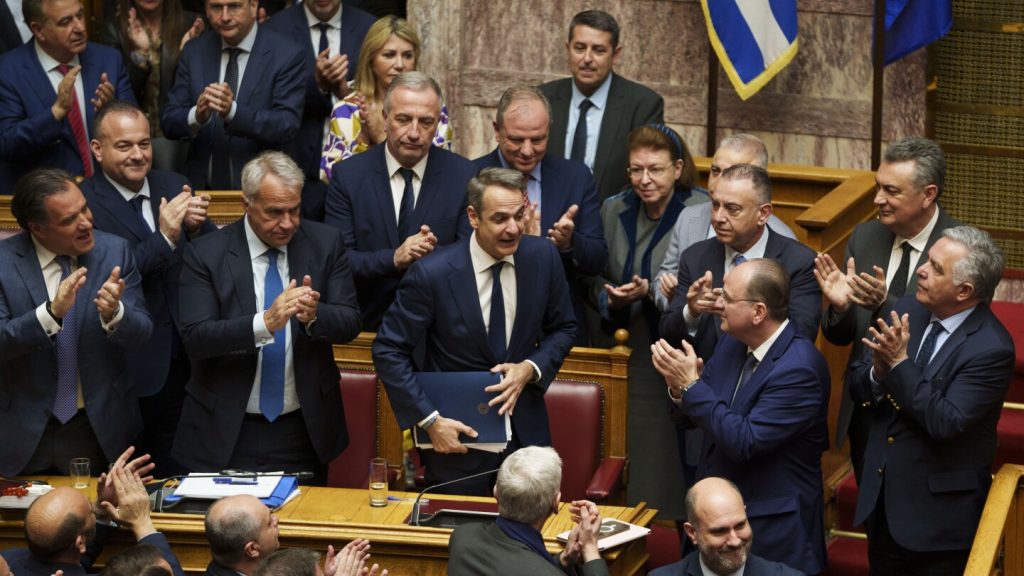The center-right government in Greece survived a motion of no-confidence brought by opposition parties over its handling of the country’s deadliest rail disaster a year ago. The crash, which occurred on Feb. 28, 2023, left 57 people dead, many of them university students returning from a spring break. The government was accused of hindering the investigation into the crash, with four left-wing opposition parties leading the charge. Despite the acrimonious three-day debate, parliament voted 159-141 against the motion, with the government also rejecting calls for a snap election. Prime Minister Kyriakos Mitsotakis denied any wrongdoing and vowed to respect the results of the ongoing judicial investigation.
Mitsotakis addressed lawmakers ahead of the vote, stating that there was no cover-up and questioning the contribution of the parliamentary debate to the investigation. However, opinion polls indicate that a majority of the public believe the government has not been transparent in addressing its responsibilities regarding the crash. Despite the defeat of the no-confidence motion, the collaboration between center-left and left-wing parties ahead of the upcoming European Parliament elections in June was a rare occurrence in Greek politics. The aftermath of the rail disaster has brought political tensions to the forefront, highlighting the need for accountability and transparency in government actions.
The Feb. 28, 2023 rail crash was a tragic event that shook the nation, with 57 individuals losing their lives in a collision between a passenger train and a freight train mistakenly placed on the same track. The aftermath of the disaster has led to calls for accountability and transparency from the government, with opposition parties accusing the ruling center-right government of hindering the investigation into the crash. Despite the government surviving the motion of no-confidence, concerns remain among the public regarding the handling of the situation and the need for a thorough and impartial investigation to determine the facts surrounding the incident.
Prime Minister Mitsotakis has pledged to respect the ongoing judicial investigation into the rail crash and has denied any cover-up or wrongdoing on the part of the government. However, the public perception of the government’s response to the disaster remains a point of contention, with many believing that the government has not been fully transparent in addressing its responsibilities. The rare collaboration between center-left and left-wing parties in bringing the no-confidence motion highlights the political divisions and tensions surrounding the issue, particularly in the lead-up to the European Parliament elections in June.
The no-confidence vote and the subsequent parliamentary debate have brought the issue of accountability and transparency in government actions to the forefront of Greek politics. The outcome of the vote, with the government surviving but facing criticism from opposition parties and the public, underscores the need for a thorough and impartial investigation into the rail disaster. As the judicial investigation continues, it is crucial for the government to demonstrate its commitment to transparency and accountability in addressing the concerns raised by the public and opposition parties. The aftermath of the rail crash serves as a reminder of the importance of government accountability and the need for a responsible and ethical approach to governance.


